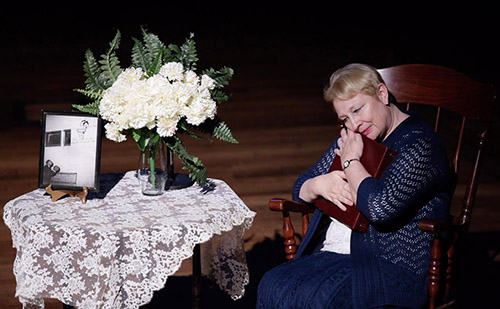by Nicholas Stevens
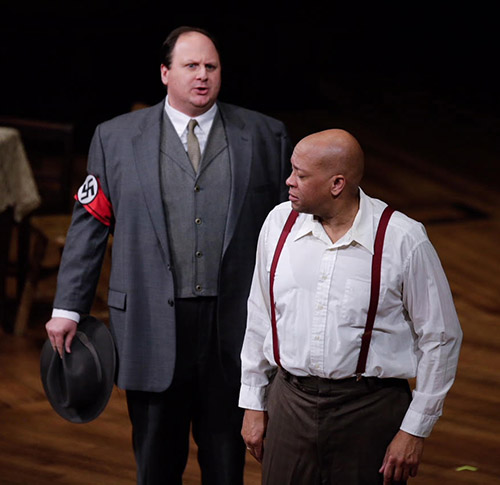
The cast and orchestra sounded fresh in their performance of the 90-minute piece on January 28 at the Maltz Performing Arts Center, despite the fact that several of the singers had been inhabiting other roles throughout the Festival weekend. Inspired by recollections from Sonntag’s family members, the scenario for Verlorene Heimat reflects the real-world timeline of World War II — especially the events of 1944-45, when soldiers, scientists, and everyday citizens alike joined in the mass murder of millions.
The Cleveland premiere occurred on January 27 — International Holocaust Remembrance Day — yet Verlorene Heimat addresses the Nazis’ extermination campaign only indirectly through the character of Hedwig (Dawna Warren, soprano), a Ukrainian girl fated never to see her Jewish father again. Sent to perform forced labor for an anti-Nazi East Prussian family, the Neubers (Sonntag’s own ancestors), Hedwig joins the women of the family in fleeing the coming Soviet invasion.
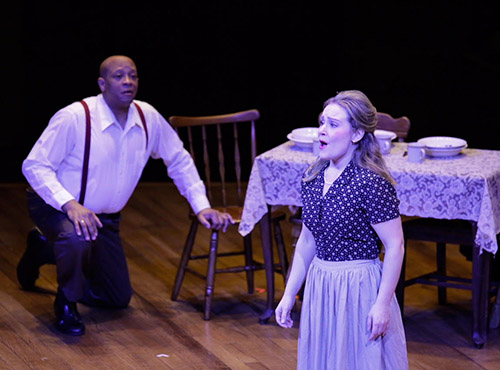
In a concluding scene set in 2012, the now-elderly Christa (Olga Druzhinina, in a speaking role) remembers her childhood and conjures a fantasy in which Hedwig lives to adulthood. The mass tragedy of the title — that of fleeing families like the Neubers, caught between the intimidation of the Nazis at home and the incursion of the Soviets from abroad — accesses a greater horror: the fact that millions more never enjoyed the sort of happy ending that Christa imagines for her Ukrainian friend.
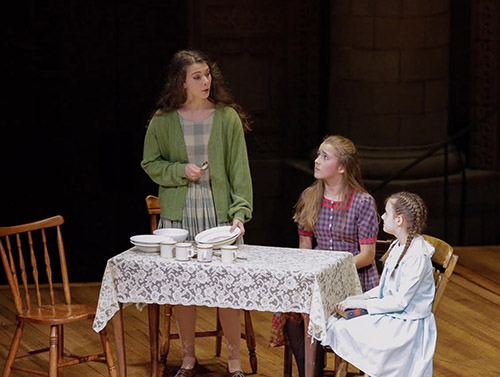
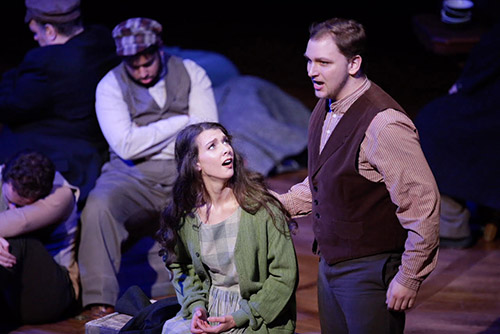
Photos by Alejandro Rivera.
Published on ClevelandClassical.com January 30, 2018, revised February 5, 2018.
Click here for a printable copy of this article




